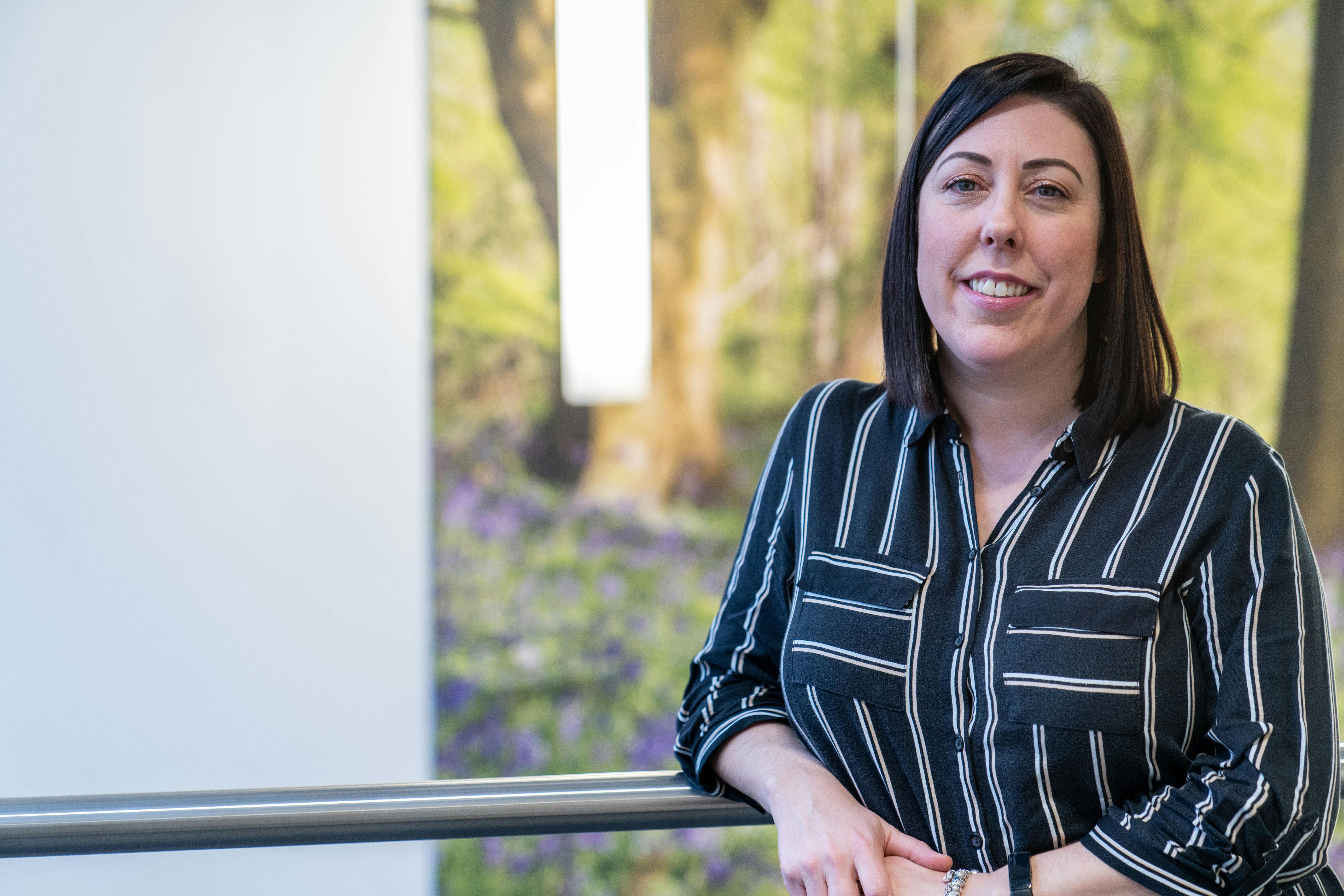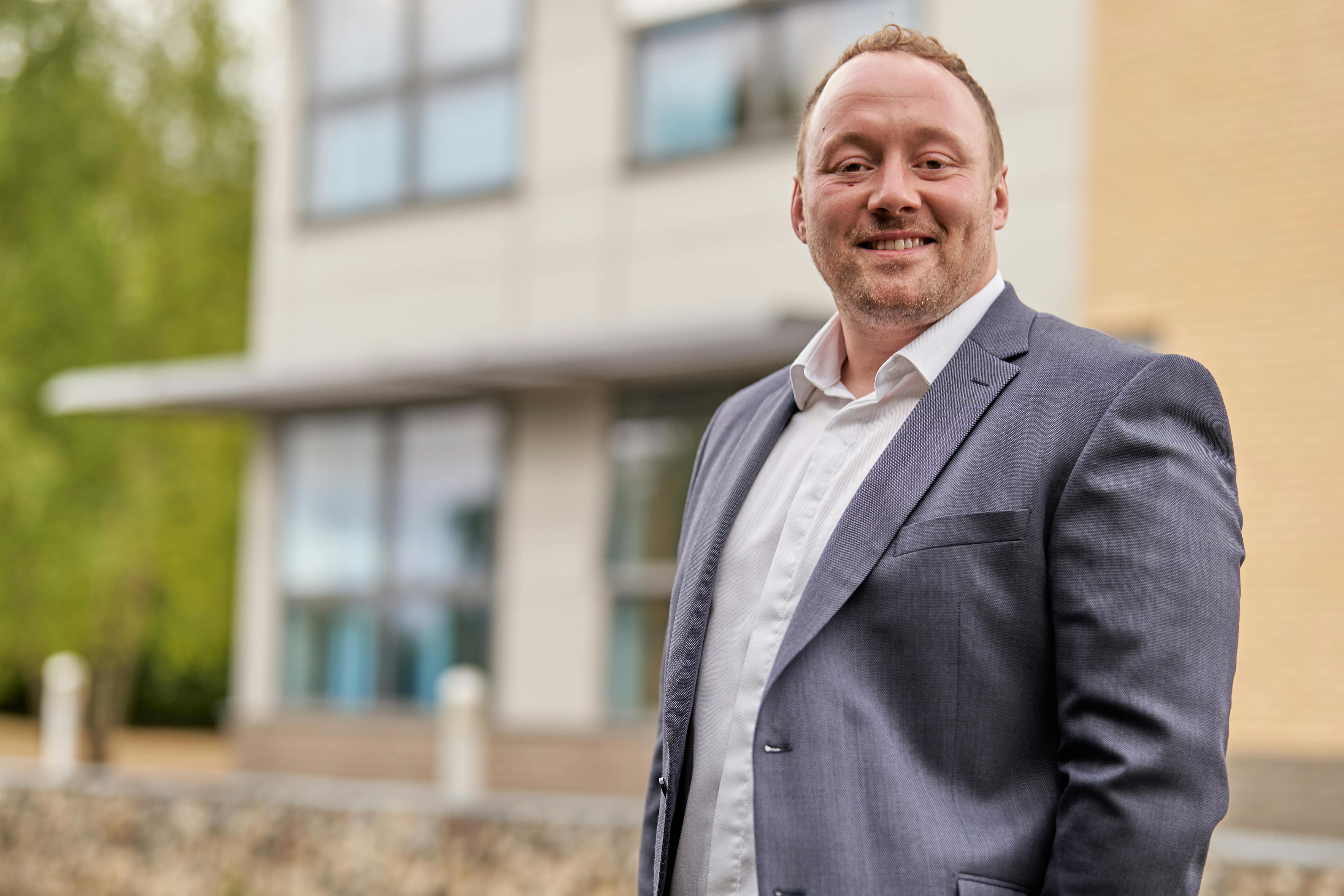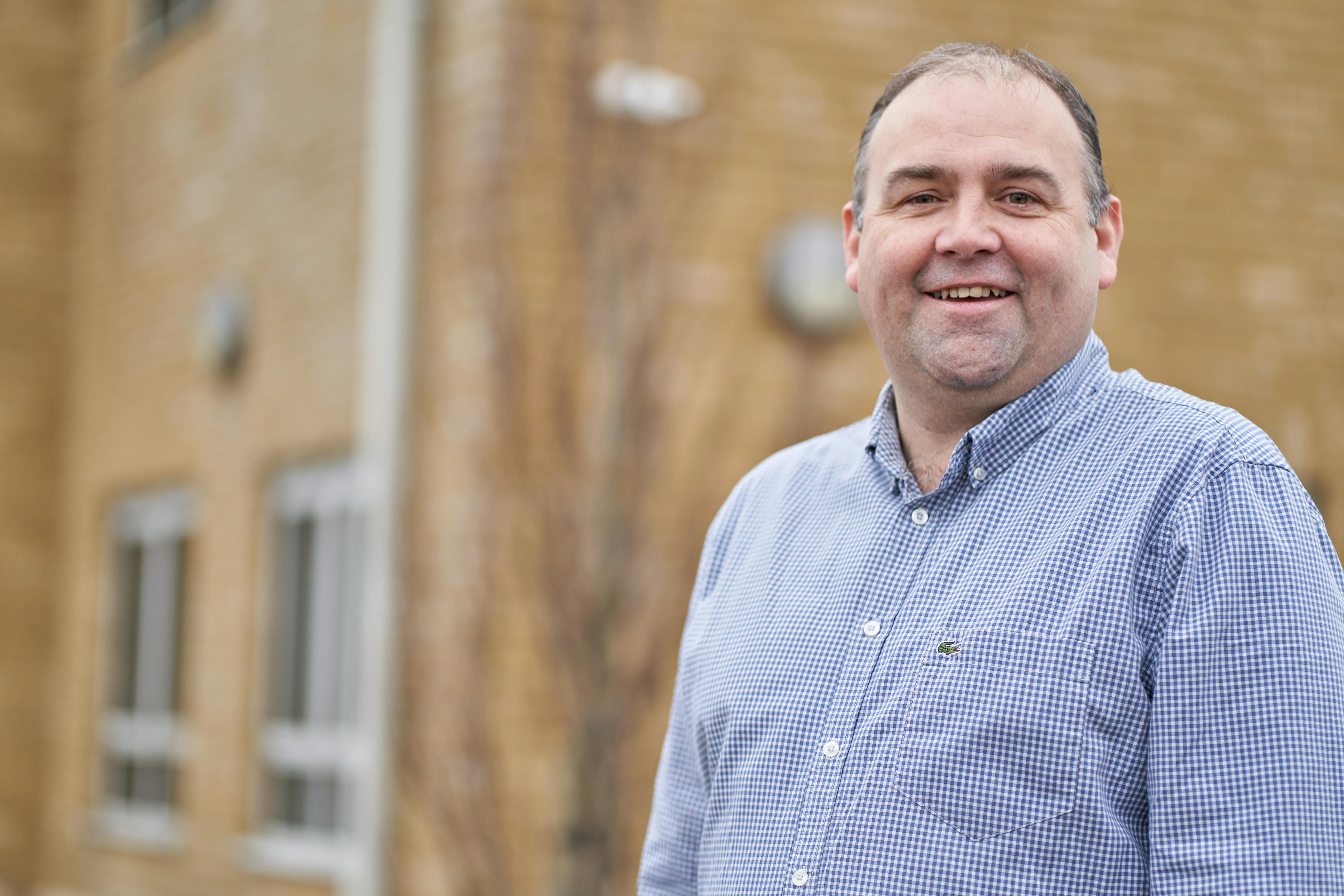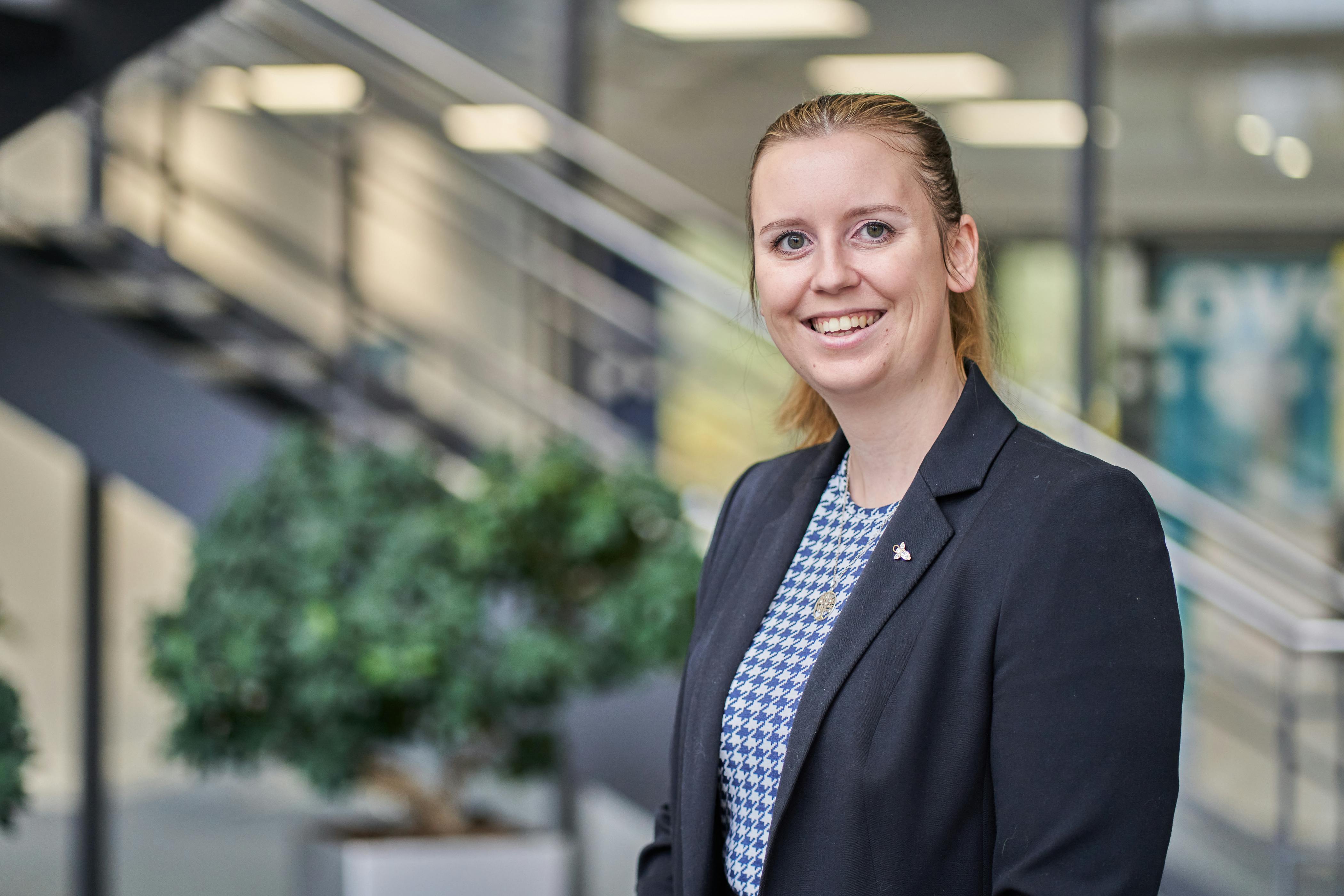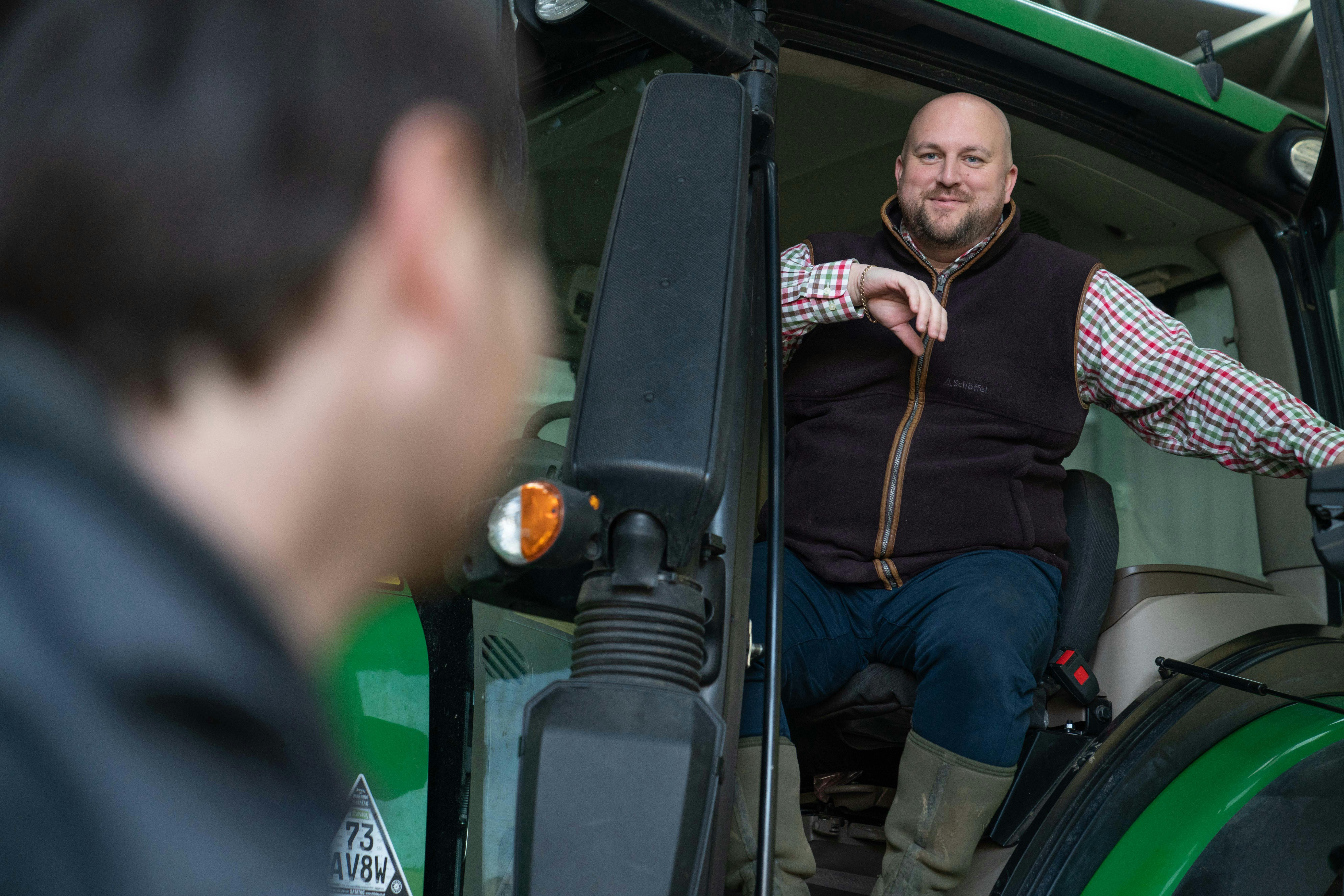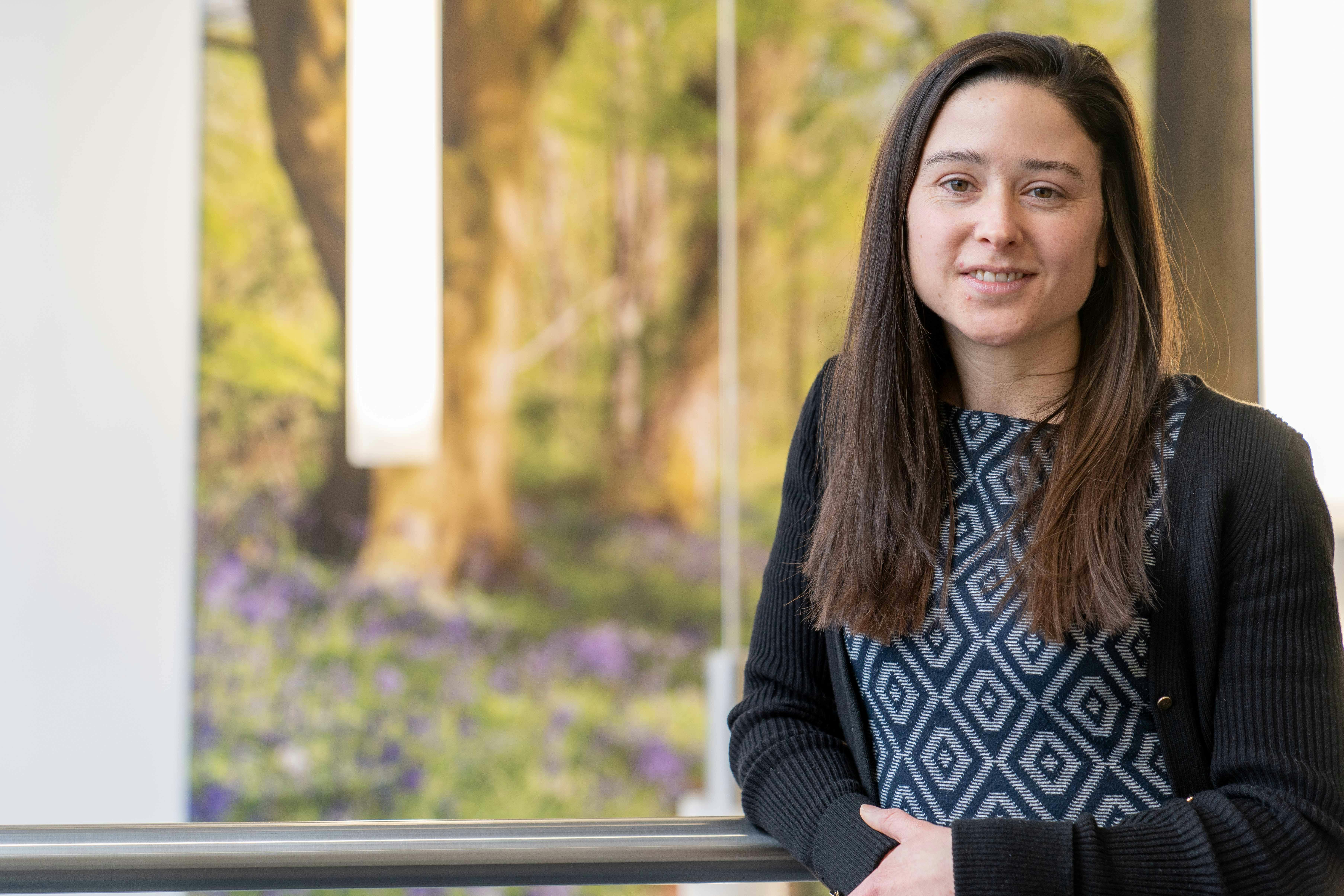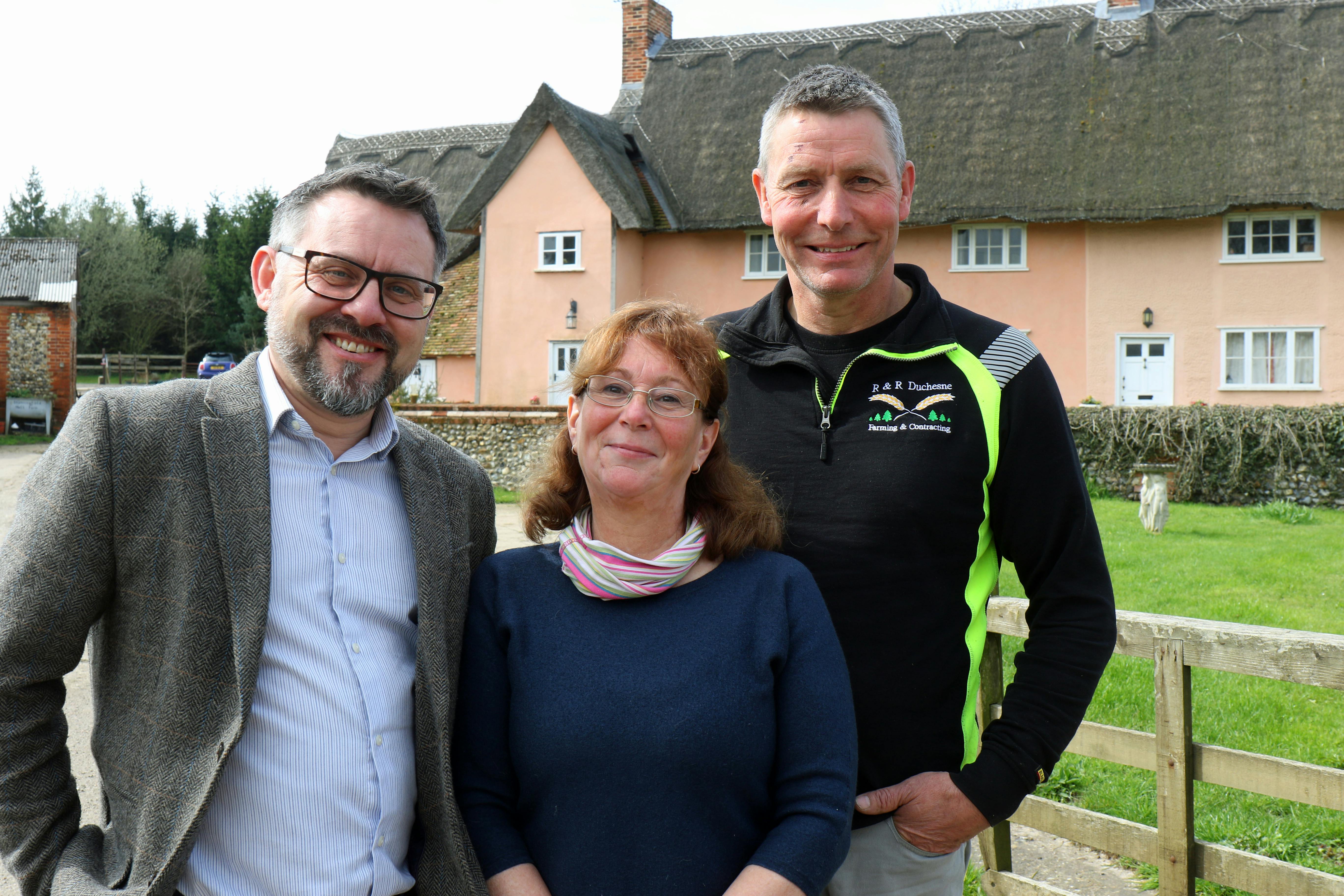Realistically, it also requires the help of others, whether from within the farming community or from professional support.
If ever there was a case study which demonstrated all of this, it is the story of Richard and Ruth Duchesne, who farm at Stanningfield in Suffolk and run Richard Duchesne Farming & Contracting. Theirs is a long and involved tale, but it is worth sticking with because it is both inspirational and instructive.
Richard and Ruth now farm around 2,000 acres of land, both on their own 140 acre farm, and under contracts with various others in the area. But this large and successful operation came from a humble start.
Modest Beginnings
Farming is certainly in Richard’s blood: his great-grandfather farmed at Bishops Stortford, and his father worked in the agricultural world, initially in a feed mill, and then keeping pigs on a small parcel of land at Stanningfield.
Richard himself attended King Edward College in Bury St Edmunds, before enrolling at Chadacre Agricultural College. On completing his National Certificate in Agriculture, he left college at age 17 and went to work for Jack Webber, a neighbouring farmer, before coming home to help his father, who by that time was working 180 acres of arable land.
Self-employed work as a gardener and digger driver followed, with Jack Webber acting as something of a mentor – it is clear that Richard inspires encouragement in many people he meets. He also has a knack of spotting opportunities and grabbing them. So when a local farmer’s nephew emigrated to Australia, he managed to persuade them to let him run the farm on a self-employed basis.
By this time Richard had met and married Ruth, and the couple’s long-term ambition was to own their own farm – something which still seemed a distant prospect in the early 1990s. But when Stanley, the tenant of the farm that Richard was running on his behalf, moved into long-term care, the couple managed to persuade the owner Jill Simpson to rent them the land, often the first step towards running your own show.
The agreement was on a rolling one year tenancy, and included the farmhouse. But, as Richard says, “I had got my foot in the door”.
To finance the new enterprise, the couple went seeking funds from local banks. Despite being armed with a business plan and cashflow, the first bank said no, but that tenacity and refusal to take no for an answer came to the fore, and after doing the rounds of all the banks in Bury St Edmunds, he finally persuaded Nat West to back his plan.
A Low Point – And A Lightbulb Moment
Despite a great deal of hard work, by the third year of the arrangement, things were not looking good. The business was not making money (the farm wasn’t really big enough to cover the capital costs), and the couple simply couldn’t pay the rent. It looked like it was the end of the dream.
Richard, a man who wears his heart on his sleeve, is clearly emotional as he describes what happened next. “Ruth and I went for a walk to clear our heads – and in reality, to allow ourselves to say goodbye to the farm. It was a real low point.”
But in as good an example of serendipity as you could find, something wonderful happened. “As we walked past their house, we noticed our neighbours John and Mary in their garden. They stopped us and told us that John wanted to retire – and ‘did you want something to do with your big machinery?’
“In one fell swoop we had doubled our acreage, put the business on a sustainable footing, and by accident taken on our first bit of contract farming. It was a real lightbulb moment – I realised that if we could do this for John and Mary, we could do it for other farms, and build a viable business that way.”
Setting up any new enterprise is fraught with difficulties though, and the local agricultural community was watching closely – and clearly approved of what it saw. “Local farmers gave us lots of help and support,” says Ruth. “They lent us machinery and gave us work.”
Gradually the contracts started to grow. Another 200 acres at Lavenham started as ad hoc spraying and combining and ended with taking over the running of the whole farm; a further 300 acres came their way on a three year contract in 2008.
A Well-Deserved Break
The couple had developed an excellent relationship with their landlord, Jill, who they had worked with to totally renovate the farmhouse on a true partnership basis, with Jill providing some finance, and Richard and Ruth putting in the hard labour. It is the kind of collaborative approach which is not uncommon in rural communities, even if it doesn’t always fit with the received wisdom of landlord/tenant contracts!
Sadly in 2014, Jill died. When Richard and Ruth were called into the land agents and solicitors for a meeting, they were faced with uncertainty about their future, and about their home.
In fact, it was a meeting which would change their lives. The couple’s hard work, tenacity in the face of adversity, and the respect in which they were held in the local farming community was all about to be repaid.
Jill had no children, and had become very close to Richard and Ruth. She had decided that there was no better custodian of her legacy than the hard-working couple next door, and to their considerable shock, they found out that she had left them not just the farmhouse, but the 70 acres of land which went with it (which Richard and Ruth had been farming on Jill’s behalf prior to her death).
“We couldn’t believe it,” says Ruth. “After all this time, we were finally able to put down some roots and own our own farm.”
Further Growth – With Support
That stability enabled the couple to consider how they could continue to grow their business, sustainably and profitably. After a brush with the taxman in 2012 due to less than optimum advice from their accountant at the time, they realised that their growth plans would need professional support.
“As the business became bigger, we realised that we need a different type of accountant,” says Richard. “Prior to this I had always looked for an accountant who was cheap; well, my cheap accountants cost me a lot of money over the years - not just through inefficient tax planning, but through not providing us with the type of proper business planning we needed.”
In 2018 the couple took on Lovewell Blake, and started working with Justin Wright, a food and farming specialist based at the firm’s Thetford and Bury St Edmunds offices. As well as Lovewell Blake’s reputation, the personal chemistry was vital to making that choice.
“I just liked Justin. It’s not just about the professionalism and the skills, it’s about working with someone you would have a beer with. Over the years he has become like another family member. For the first time in years we have confidence in our accountant.”
Ruth adds that a big plus is Justin’s proactivity (or ‘nagging’ as she puts it!): “If Justin says something, Richard will do it. We have total confidence in him.”
Justin and the team at Lovewell Blake set to work not just on tax and compliance, but on helping with finance and business planning too.
The finance aspect is particularly important for a contracting business. “I always try to get the biggest and best kit I can,” says Richard. “When you are contracting, it is important to have at least as good equipment as your clients.”
Lovewell Blake is now playing an important part in planning for the future, as the succession of the business to their son 25 year-old Sam is happening gradually.
“Sam is in awe of Justin, and in turn Justin is very good at explaining to him what is going on. When you are young there is a tendency to think you have all the answers, but the relationship Sam and Justin have means that Sam takes on board what he says. Sam will need Justin on his side as he moves into the future, and it’s a real reassurance for us that we have that extra ‘team member’.”
An Ambition Achieved
“When we took on our first tenancy in autumn 1996, we knew we wanted a farm of our own, but didn’t really believe it was achievable,” says Richard. “We have had some amazing slices of luck, but we have also never stopped believing in, and working every hour towards, that dream.
“My advice to anyone starting out as we did all those years ago would be: work hard, don’t expect it will all be easy, and trust that fate will step in to help you. And make sure you have the support you need, both from the local farming community, and from a really good professional adviser. In the end, it is all that support which has enabled us to achieve our ambition.”
At Lovewell Blake, we offer accountancy advice for all types of agricultural businesses.

